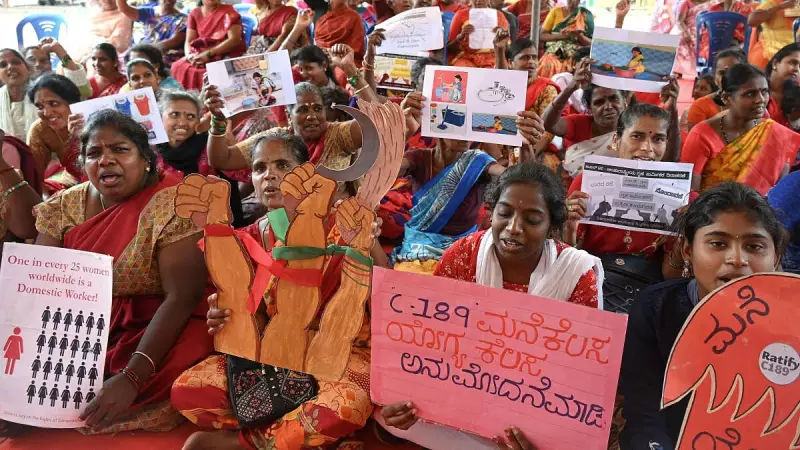
The Karnataka Development Authority has expressed strong concern over the state government's failure to publish the draft domestic workers bill in Kannada, calling the oversight regrettable and against linguistic pride.
Language Oversight Sparks Controversy
In a significant development that has caught the attention of labor rights activists and linguistic proponents alike, the Karnataka Development Authority has raised objections to the government's approach toward the proposed domestic workers legislation. The authority highlighted that publishing the draft bill only in English demonstrates disregard for Kannada, the state's official language, and limits accessibility for those most affected by the legislation.
The controversy emerged as the government prepared the draft legislation aimed at providing better protection and dignity to domestic workers across Karnataka. While the bill represents a progressive step toward recognizing the rights of this often-overlooked workforce, the language barrier could potentially exclude the very people it intends to protect from participating in the consultation process.
Mixed Reactions from Workers' Unions
Workers' unions and activists have expressed divided opinions about the proposed legislation. On one hand, they acknowledge that the bill marks a welcome step toward providing domestic workers with long-overdue dignity and legal protection. The formal recognition of domestic work as legitimate employment represents a significant shift in how this sector is perceived and regulated.
However, several concerns have been raised about the bill's practical implementation. Unions point to several gaps in the proposed legislation that may prevent it from achieving its intended purpose. These include inadequate mechanisms for enforcement, vague definitions of working conditions, and insufficient provisions for social security benefits that would genuinely improve workers' lives.
Activists argue that without addressing these fundamental issues, the bill risks becoming merely symbolic rather than transformative for the thousands of domestic workers across Karnataka who face exploitation and uncertain working conditions daily.
The Way Forward for Domestic Workers' Rights
The ongoing debate highlights the complex challenges in crafting effective labor legislation that balances legal precision with practical accessibility. The publication date of November 20, 2025, marks a critical juncture for both linguistic rights and workers' welfare in Karnataka.
As discussions continue, stakeholders emphasize that any meaningful legislation must not only be technically sound but also accessible to those it aims to protect. The Karnataka Development Authority's intervention underscores the importance of ensuring that legal processes remain inclusive and respectful of regional languages and cultural contexts.
The outcome of this controversy will likely set important precedents for how future labor legislation is developed and communicated to affected communities throughout Karnataka and potentially other Indian states facing similar linguistic and implementation challenges.




